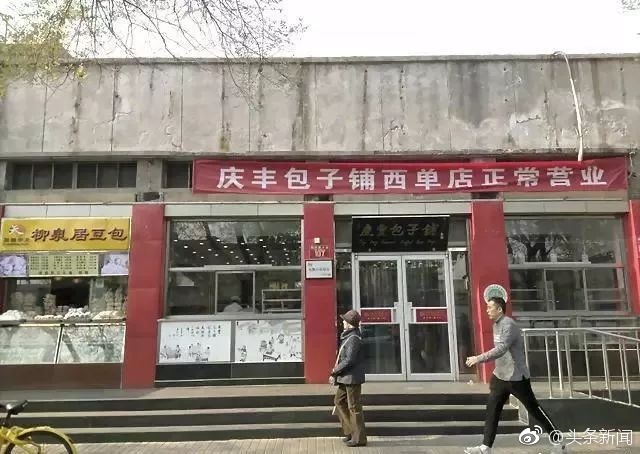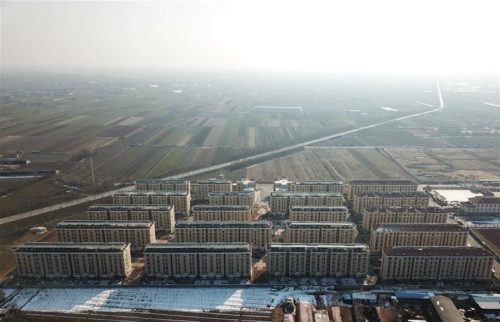People’s Daily argues against Beijing’s skyline cleanup campaign
People’s Daily argues against Beijing’s skyline cleanup campaign


It’s been a year of demolition for Beijing:
- In order to create an “orderly, civilized and beautiful street environment,” the capital has launched a renovation project to destroy illegally built structures, mostly in centuries-old courtyard alleyways known as hutongs.
- Last month, thousands of migrant workers living in poor districts were evicted in a cleanup initiative to crack down on unsafe public housing.
And now, to “beautify” the capital’s skyline, about 27,000 billboards and signs are set to be torn down in a citywide campaign. The project has attracted a storm of criticism online and even a scathing op-ed from the state-run People’s Daily.

The People’s Daily opinion piece (in Chinese) was published on December 7, after nearly 9,000 billboards, signs, and logos labeled illegal by municipal authorities had already been destroyed. Titled “The most beautiful skyline should extend to people’s hearts,” the article acknowledged the divided opinion on the Chinese internet regarding the sweeping campaign:
“Advocates of the campaign said these billboards were not ‘capital’ enough and had no aesthetics, whereas opponents questioned if it was necessary to remove signs like Qingfeng Steamed Bun Shop [a chain made famous by Xi Jinping], which was only one story high.”

The skyline campaign was announced in September by the municipal government with the aim of creating “an urban skyline that is visually clear and bright.” According to the South China Morning Post, targeted signs are those more than three stories high and over one and a half meters long, or that use highly reflective materials. But some seemingly compliant signs were also removed, including wayfinding signs for schools and hospitals. In addition, many locals argued that demolishing the signs of some stores that have a long history and replacing them with standardized designs would destroy the city’s traditional architectural diversity.

“No one would disagree that it’s good for Beijing to have a stunning skyline like Shanghai and Hong Kong, but we also want it to have its own rhythm,” the author of the People’s Daily op-ed wrote, citing examples of Tokyo and New York, which, according to him, “well integrated culture, history, and business into their skylines” and made them both “decorative and narrative.”
“After all, all buildings should be people’s buildings, and cities should be our cities,” the author concluded.

Online, internet users were baffled by how the key argument in a newspaper run by the Communist Party could so contradict the city’s campaign. Some representative comments (in Chinese):
- “It’s only after the campaign started that this article arrived. Please don’t disgust me anymore by having one play the good guy and the other the bad guy.”
- “It’s rare to see People’s Daily publish an article to criticize the government. There must be some inside stories we don’t know.”
- “This year’s Beijing is far beyond my comprehension.”
EARLIER THIS WEEK
This week the studio announced that Liu Yifei would be cast as the legendary female warrior in an upcoming live-action film. The China Project’s Jia Guo looks at the Chinese actress’s career and controversy over her recent status as “box-office poison” at home.
The state’s attorney general is looking into a potential violation of the Illinois Human Rights Act involving the ad, which told customers they would be riding among “passengers like you.”
A private institute known as the Fushun School of Traditional Culture was closed for violating “socialist core values” after video surfaced showing an instructor urging female students not to pursue careers and to be unconditionally obedient to their husbands.
French and Chinese officials held a naming ceremony for the four-month-old cub this week. The young male was named Yuan Meng (圆梦 yuán mèng), which means “realizing a dream,” a fitting phrase for China’s soft power ambitions.
—Jiayun Feng and Sky Canaves
More news from today
- Dangerous games in the age of selfies
Young rooftop daredevil’s luck runs out, girlfriend confirms his death / Shanghaiist - Fake towns
All the world’s a stage for Chinese city that wants to recreate Shakespeare’s hometown / SCMP - 太惨了
Chinese driver who hit nine-year-old with car ‘killed her to avoid high compensation bill’ / SCMP - Education abroad and revenge on Cecil John
4 Chinese students win Rhodes Scholarships among 12,000 global candidates / China Daily - Child abuse
Court to identify child sex offenders / China Daily - Recreational drugs
Chinese man detained for selling 12,000 boxes of laughing gas on social media, including WeChat / SCMP






